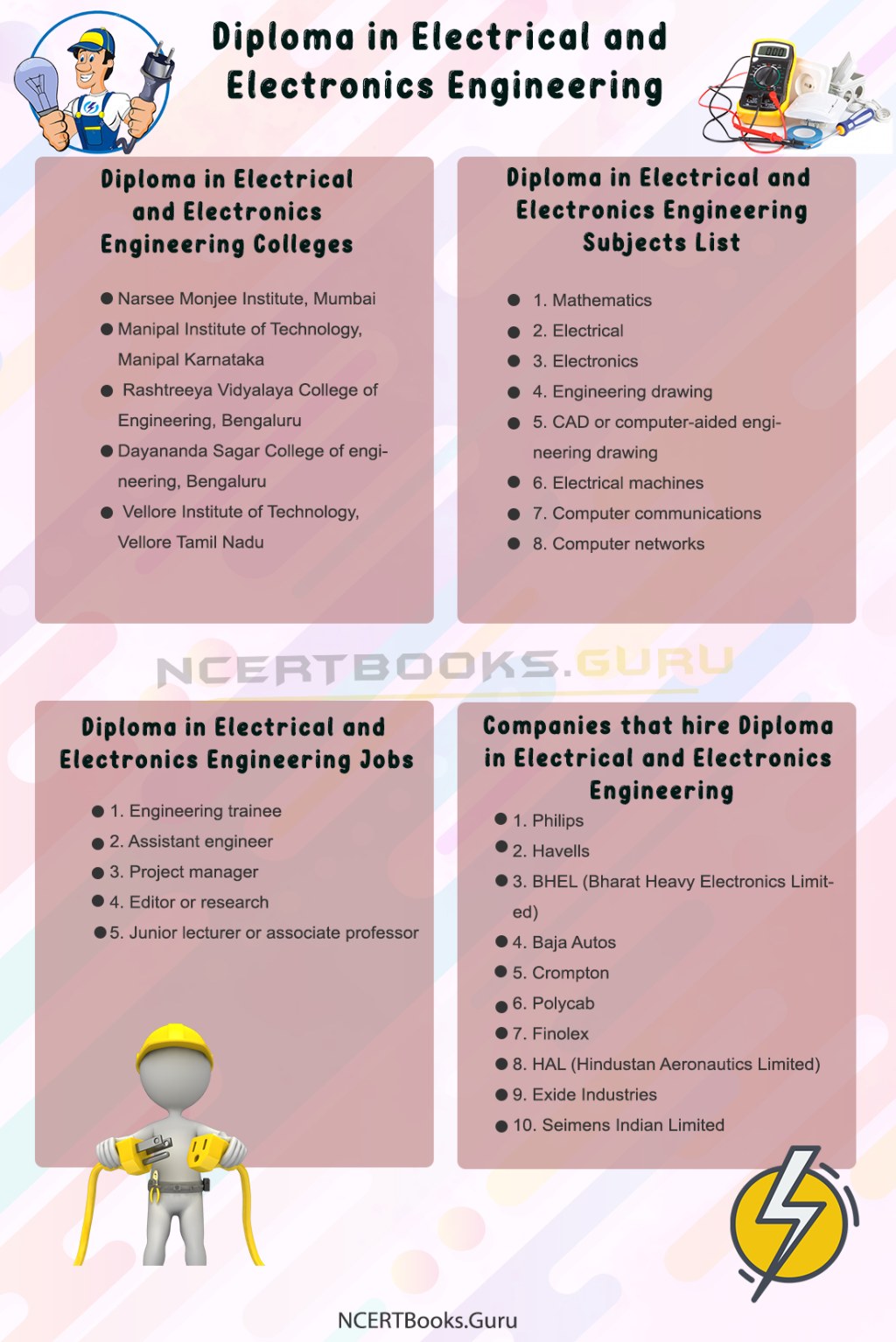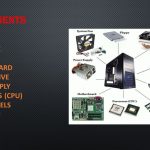Master Your Skills With Exciting Electronics 3rd Year Subjects – Enrich Your Knowledge Now!
Electronics 3rd Year Subjects
Welcome, readers! Today, we will discuss the various subjects that are covered in the third year of an electronics degree. As you progress through your studies, the subjects become more specialized, preparing you for a career in the field of electronics. In this article, we will provide an overview of the electronics 3rd year subjects and their importance in building a strong foundation in this field.
Introduction
The third year of an electronics degree focuses on advanced topics that delve deeper into the principles and applications of electronics. During this year, students are exposed to a wide range of subjects that enhance their knowledge and skills in the field. Let’s take a closer look at the subjects offered in the third year:
2 Picture Gallery: Master Your Skills With Exciting Electronics 3rd Year Subjects – Enrich Your Knowledge Now!


1. Digital Signal Processing
🔍 Digital Signal Processing (DSP) is a subject that deals with the manipulation and analysis of digital signals. Students learn about various techniques and algorithms used in processing signals to extract information or enhance the quality of the signal. This subject is crucial for understanding modern communication systems and digital audio processing.
2. Microcontrollers and Embedded Systems

Image Source: ncertbooks.guru
🔍 Microcontrollers and Embedded Systems delve into the design and programming of microcontrollers, which are at the heart of many electronic devices. Students learn about the architecture, interfacing, and programming of microcontrollers using languages like C and assembly. This subject is essential for anyone interested in developing embedded systems or IoT devices.
3. Power Electronics
🔍 Power Electronics focuses on the study of electronic devices and circuits used in the control and conversion of electric power. Students learn about power semiconductor devices, converters, inverters, and their applications in various industries. This subject is vital for understanding power systems and renewable energy technologies.
4. Communication Systems
🔍 Communication Systems introduces students to the principles and techniques used in transmitting and receiving information over long distances. Topics covered include analog and digital modulation techniques, multiplexing, channel coding, and wireless communication systems. This subject is crucial for anyone interested in the telecommunications industry.
5. VLSI Design

Image Source: scribdassets.com
🔍 Very Large Scale Integration (VLSI) Design deals with the design and implementation of integrated circuits (ICs) with millions or billions of transistors on a single chip. Students learn about the various design methodologies, tools, and techniques used in designing complex digital and analog circuits. This subject is essential for anyone interested in the semiconductor industry.
6. Control Systems
🔍 Control Systems focuses on the analysis and design of systems that automatically regulate or control the behavior of other systems. Students learn about mathematical modeling, stability analysis, and control techniques used in various engineering applications. This subject is crucial for understanding automation and robotics.
7. Electromagnetic Fields and Waves
🔍 Electromagnetic Fields and Waves cover the fundamental principles of electromagnetic theory and its applications. Students learn about Maxwell’s equations, electromagnetic wave propagation, transmission lines, and antenna design. This subject is essential for understanding wireless communication, radar systems, and electromagnetic compatibility.
What are Electronics 3rd Year Subjects?
Electronics 3rd year subjects are advanced courses that build upon the foundational knowledge gained in the earlier years of an electronics degree. These subjects focus on specialized areas of electronics and provide students with a deeper understanding of the principles and applications in these fields.
Who Should Study Electronics 3rd Year Subjects?
Electronics 3rd year subjects are designed for students pursuing a degree in electronics or a related field. These subjects are suitable for those who have already completed the first two years of their electronics degree and have a strong foundation in the basics of electronics.
When Should You Study Electronics 3rd Year Subjects?
Electronics 3rd year subjects are typically taken in the third year of an electronics degree program. This is when students have acquired the necessary knowledge and skills from the earlier years to tackle more advanced topics in the field.
Where Can You Study Electronics 3rd Year Subjects?
Electronics 3rd year subjects are offered by universities and colleges that provide electronics degree programs. These subjects are usually part of the curriculum for electronics engineering or electronics and communication engineering degrees.
Why Should You Study Electronics 3rd Year Subjects?
Studying electronics 3rd year subjects is essential for developing in-depth knowledge and skills in specialized areas of electronics. These subjects equip students with the necessary expertise to succeed in their careers and stay updated with the latest advancements in the field.
How Can You Succeed in Electronics 3rd Year Subjects?
To succeed in electronics 3rd year subjects, it is important to attend lectures regularly, actively participate in class discussions, and engage in hands-on practical sessions. Additionally, dedicating sufficient time for self-study, referring to recommended textbooks and resources, and seeking help from professors or classmates when needed can greatly contribute to your success in these subjects.
Advantages and Disadvantages of Electronics 3rd Year Subjects
Advantages of studying electronics 3rd year subjects:
1. Enhanced knowledge and skills in specialized areas of electronics.
2. Preparation for a career in industries such as telecommunications, semiconductor, and power systems.
3. Opportunities to work on advanced projects and research in electronics.
4. Development of problem-solving and critical thinking abilities.
5. Exposure to the latest advancements and technologies in the field.
Disadvantages of studying electronics 3rd year subjects:
1. Increased complexity and difficulty compared to earlier years.
2. Higher workload and time commitment.
3. Need for a strong foundation in the basics of electronics.
4. Limited scope for those not interested in pursuing a career in electronics.
5. Challenging exams and assignments.
Frequently Asked Questions (FAQ)
1. Can I take electronics 3rd year subjects if I am not majoring in electronics?
Yes, you can take electronics 3rd year subjects as electives if they are offered by your institution. However, it is advisable to have a strong foundation in the basics of electronics to ensure a smooth transition to these advanced courses.
2. Are there any prerequisites for electronics 3rd year subjects?
Prerequisites for electronics 3rd year subjects vary depending on the institution and the specific subject. It is best to check the course catalog or consult with your academic advisor to determine if there are any prerequisites for the subjects you wish to take.
3. What career opportunities are available for those who have studied electronics 3rd year subjects?
Studying electronics 3rd year subjects opens up a wide range of career opportunities in industries such as telecommunications, semiconductor, power systems, automation, and embedded systems. Graduates can work as electronics engineers, communication specialists, embedded systems designers, or pursue research and development roles in these fields.
4. How can I stay updated with the latest advancements in electronics?
To stay updated with the latest advancements in electronics, it is important to engage in continuous learning. This can be done through reading technical journals, attending conferences and workshops, joining professional organizations, and participating in online forums and communities dedicated to electronics.
5. What are the future prospects for those who have studied electronics 3rd year subjects?
The future prospects for those who have studied electronics 3rd year subjects are promising. With the rapid advancements in technology, there is a growing demand for professionals with expertise in specialized areas of electronics. Graduates can expect to have a wide range of career opportunities and the potential for growth and advancement in their chosen field.
Conclusion
In conclusion, the third year of an electronics degree offers students the opportunity to delve deeper into specialized areas of electronics. The subjects covered in this year provide students with the knowledge and skills necessary to excel in their chosen field. Whether it is digital signal processing, microcontrollers, power electronics, communication systems, VLSI design, control systems, or electromagnetic fields and waves, each subject plays a vital role in shaping a student’s understanding of electronics. By studying these subjects, students can enhance their career prospects and contribute to the advancement of electronic technology.
Final Remarks
In this article, we have explored the various subjects that are covered in the third year of an electronics degree. These subjects form the building blocks of a strong foundation in electronics and pave the way for a successful career in the field. It is important to approach these subjects with dedication, curiosity, and a desire to learn. Remember to make the most of the resources available to you and seek assistance when needed. We hope this article has provided valuable insights into the world of electronics 3rd year subjects. Good luck with your studies and future endeavors!
This post topic: Electronics


